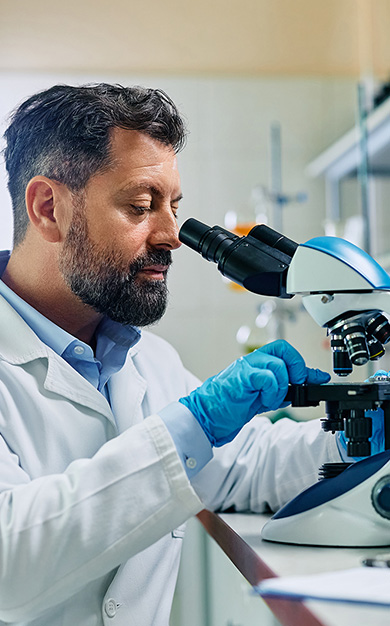Is age-related macular degeneration (AMD) hereditary?
Written By: BrightFocus Editorial Staff
Written By: BrightFocus Editorial Staff
Age-related macular degeneration (AMD) typically affects individuals over 50 years old. Scientific evidence shows that genes may play a role in the development of nearly three out of four cases of this devastating eye disease.
Several genes are believed to be strongly associated with the risk of developing AMD:
Other gene candidates are being studied to determine their role in AMD. While there is definitely a strong genetic component to this disease, it is highly likely that its development is due to a combination of multiple factors including gene mutations or variations and environmental factors such as sunlight exposure, diet and smoking.
BrightFocus Foundation is a premier global nonprofit funder of research to defeat Alzheimer’s, macular degeneration, and glaucoma. Since its inception more than 50 years ago, BrightFocus and its flagship research programs—Alzheimer’s Disease Research, Macular Degeneration Research, and National Glaucoma Research—has awarded more than $300 million in research grants to scientists around the world, catalyzing thousands of scientific breakthroughs, life-enhancing treatments, and diagnostic tools. We also share the latest research findings, expert information, and resources to empower the millions impacted by these devastating diseases. Learn more at brightfocus.org.
Disclaimer: The information provided here is a public service of BrightFocus Foundation and is not intended to constitute medical advice. Please consult your physician for personalized medical, dietary, and/or exercise advice. Any medications or supplements should only be taken under medical supervision. BrightFocus Foundation does not endorse any medical products or therapies.
Help Fight Macular Degeneration and Save Sight
Your donation helps fund critical research to bring us closer to a cure for this sight-stealing disease and provide vital information to the public.
Donate Today